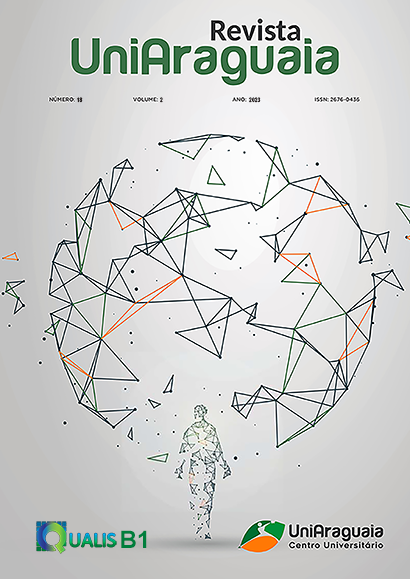O USO DE JOGOS DIDÁTICOS COMO RECURSO NO ENSINO DE BIOLOGIA: UM ESTUDO DE CASO EM CENTRO DE ENSINO PARA EDUCAÇÃO DE JOVENS E ADULTOS (EJA) NO MARANHÃO
Keywords:
Jogos, Atividades lúdicas, Jovens e adultos, Evasão escolar, Tecidos biológicos.Abstract
Atividades lúdicas agem como instrumento de ensino para o desenvolvimento de crianças, jovens e adultos. A relevância social se dá por meio das interações com os colegas a partir da efetuação de jogo didático, envolvendo a aprendizagem e o conhecimento. Este estudo é um relato de caso na aplicação do jogo "Conhecendo o tecido muscular" como recurso pedagógico no ensino de Biologia a alunos da Educação de Jovens e Adultos (EJA) na Escola C. E. Reitor Ribamar Carvalho, muniípio de Codó-MA. Além disso, foi aplicado um questionário aos alunos a fim de avaliar a dinâmica e o resultado deste no ensino de Biologia. Ao todo participaram do estudo 22 (vinte dois) alunos, com idade entre 18 e 38 anos. A aplicação foi avaliada de maneira positiva na transmissão do conteúdo didático aos alunos. Foram observados diversos momentos de descontração ao final da aula, quando os alunos se sentiram mais estimulados a conversar e se questionar sobre o conteúdo. Em um cenário de educação para jovens e adultos, jogos educativos proporcionam uma possibilidade de comunicação e interação entre os membros da comunidade escolar. A ação do professor na escolha da metodologia a ser aplicada, material e organização em sala de aula para o EJA é de suma importância no decorrer do processo de aprendizagem, principalmente, em um contexto de evasão escolar e retomada do ensino.
Downloads
Published
Issue
Section
License
The copyright of the published articles will be transferred to the Uniaaraguaia Magazine, allowing its subsequent reproduction as transcription and with due citation of source. In the event of acceptance and before the publication of the article, the plaintiff (s) shall write a statement formally transferring copyright to the magazine.
The author may also print and distribute copies of his article, provided that he mentions that the rights belong to the Uniaaraguaia Magazine.
Author rights include the right to reproduce in full or partly by any means, distribute this article, including figures and photographs.
By submitting originals to the Uniaaraguaia magazine, the author or authors express agreement with the following terms:
a) Authors maintain copyright and grant Uniaraguaia magazine the right of first publication, with the work simultaneously licensed under the Creative Commons Attribution license that allows the sharing of work with recognition of the authorship and initial publication in this magazine.
b) Authors are authorized to assume additional contracts separately, for non-expiration distribution of the work version published in this magazine (eg publish in institutional repository or as book chapter), with recognition of authorship and initial publication in this journal.
c) Authors are allowed and are encouraged to publish and distribute their work online (eg in institutional repositories or on their personal page) to any point before or during the editorial process, as this can generate productive changes as well as increase the impact and citation of published work.

